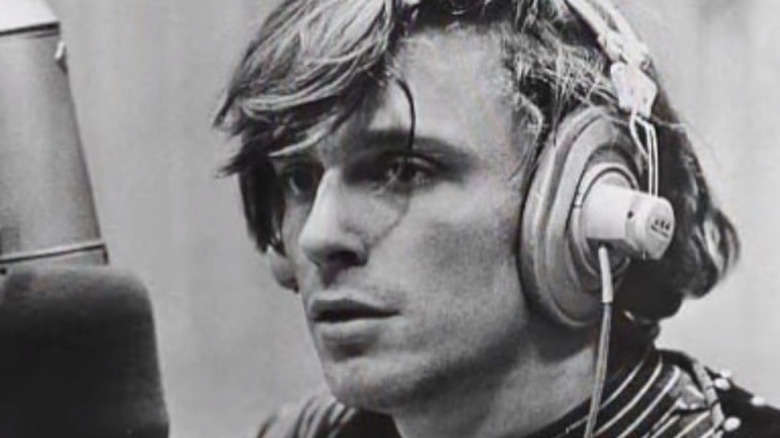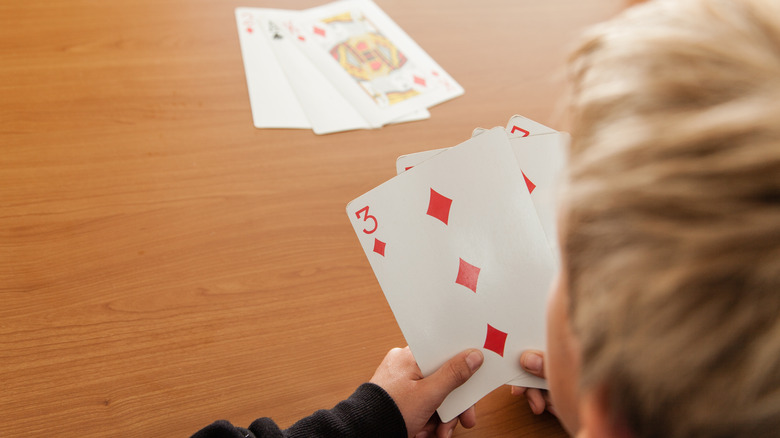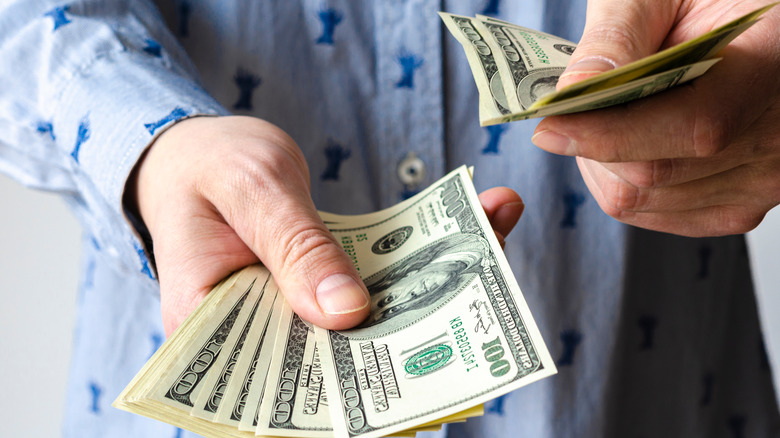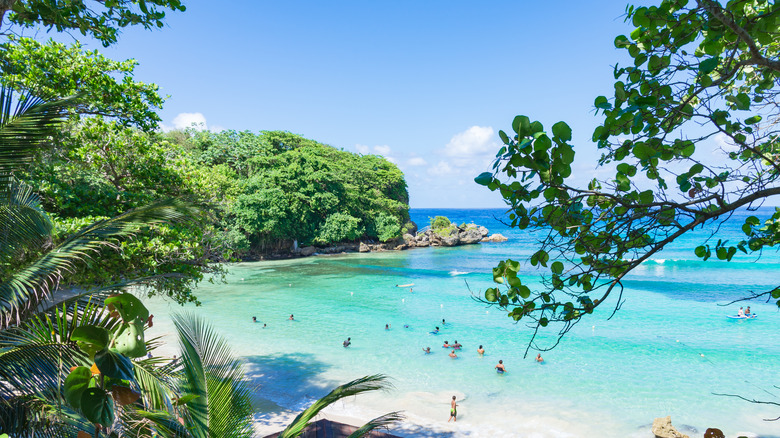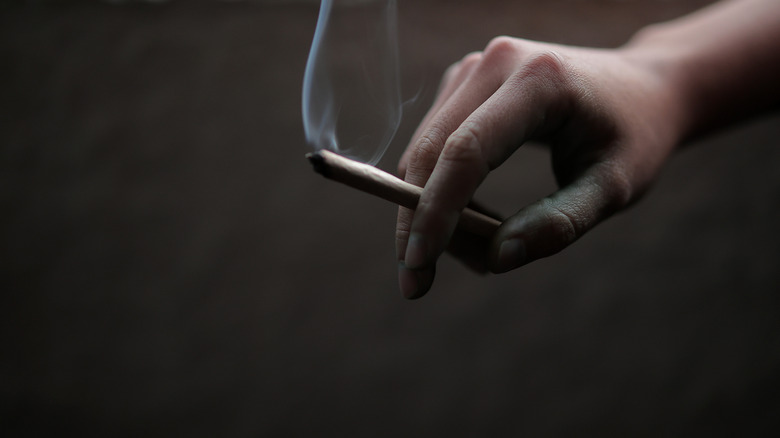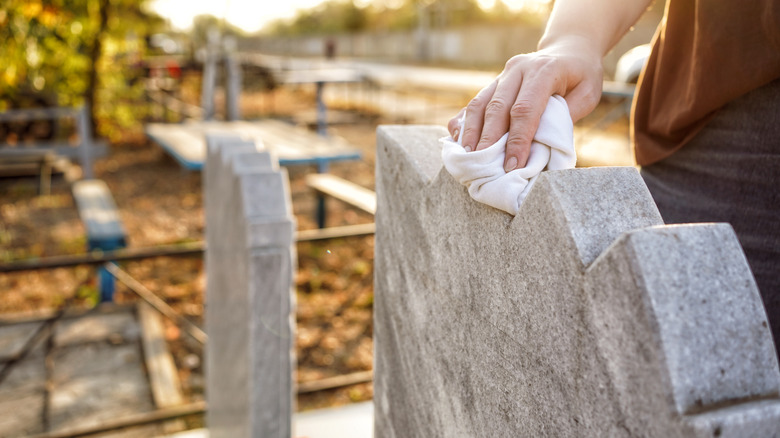What Happened To Hippie Millionaire Michael Brody Jr.?
The early 1970s were a weird time. The Vietnam War was raging, the sexual revolution of the 1960s was still shaking out, a shady president occupied the White House, and the counterculture of the hippie movement was still very much a thing. And drugs, lots and lots of drugs.
It was in this backdrop of these difficult and confusing times that an American man with a fondness for drugs and attention, and possibly more money than sense, started giving away money willy-nilly just because, to anyone who would ask, and to many who didn't ask. According to The New York Post, Over the course of a few weeks, he'd gained a following of pot-smoking hangers-on, and his behavior became increasingly erratic. He began bragging to the press about how much money he had (not nearly as much as he claimed), about his grandiose plans for ending the Vietnam War, and other falsehoods.
Eventually his demons caught up to him, and after some time in and out of mental institutions, punctuated by severe alcoholism and a couple of acts of arson, the young man took his own life. This is the story of hippy millionaire Michael Brody, Jr.
A margarine trust-fund baby
As mentioned above, the 1970s were a weird time, even in terms of cuisine. These days, most chefs will avoid being in the same kitchen with margarine, an oily and salty substance touted as an alternative to butter. But in those days, margarine was big, and Michael Brody Jr.'s grandfather had made a fortune from it. Specifically, as The New York Post reports, the elder was the first person to brand margarine, and he sold his company, Good Luck Margarine, in 1948, leaving his heirs with comfortable nest eggs.
Brody Jr.'s father, however, was a millionaire playboy with little interest in raising children, and Michael's mother died when he was 3 years old. The young boy was raised mostly by babysitters and housekeepers, says Keith Maitland, director of a documentary about the case. As a teen and young man, says the Post, Brody was so desperate for friendship and attention that he'd invite local boys to his house to play poker, and would deliberately lose, just so they'd keep coming back.
Wealth at an early age
Almost any financial adviser will tell you that coming into and managing a vast amount of wealth requires a level head, emotional maturity, and certain learned skills. Michael Brody Jr. apparently had none of those things. As The New York Post reports, as soon as he came into his trust fund at the age of 21, he started blowing money left and right.
At this point, it bears noting that the value of his trust fund was rather modest, comparatively. Filmmaker Keith Maitland claims that it was worth about $1.25 million (or about $9 million in 2022 dollars) and that when Brody first got access to it, his initial payout was $250,000 — which is more than $1.9 million by today's money when adjusted for inflation — and his monthly allotment was in the $25,000 to 30,000 range. Brody would later claim that he was worth $10 billion — but more on that later.
It was in 1969 that Brody apparently went from being a wealthy trust fund baby to being a wealthy trust fund baby who wanted to give away every penny or die trying. Specifically, he met a woman –- a drug runner named Renee -– and a few weeks later married her in Jamaica. On the way home, he bought out a whole PanAm jet just so he and Renee could travel in private.
Being a celebrity benefactor
That trip to Jamaica was a game-changer for both Michael Brody, Jr., and his brand. As The New York Post reports, while on the Caribbean Island, Brody tipped so generously that he spent $50,000 just on gratuities. Similarly, on the PanAm flight home, it's suspected that the airline notified the media about the strange passenger who bought out a whole flight, possibly for the free publicity, and when Brody and Renee arrived in New York, they were met by a gaggle of photographers.
It was at this point that Brody decided he was going to give all of his money away, to anyone who would ask. Soon enough, Brody was receiving tens of thousands of letters from people asking for money for this or that. Some were genuine pleas from people in or facing penury, just as many were fraudulent. Some people sent their Xrays to convince Brody to help with medical bills.
Brody, for his part, wrote as many checks as he could. He also handed out cash, at times just throwing $20 bills around on the street.
Soon, he was a celebrity, appearing on radio shows and getting his share of print coverage. He told anyone who would listen what his plans were with the money: he wanted to end the Vietnam War and in some way or another bring about world peace.
Drugs, all of the drugs
Like a lot of young people in the late 1960s and early 1970s, Michael Brody Jr. enjoyed the sticky icky, according to The New York Post. Indeed, by some measures, marijuana use was a part of Brody's brand. In fact, when he wasn't writing checks, he was handing out cash on the streets of New York, often with a crew of hangers-on behind him. And Brody and his crew could always be counted on to have a joint hanging out of their mouths.
As it turns out, however, he may have been smoking more than just cannabis. Journalist Ed Dwyer suggested Brody was using a much-more powerful drug, and one that may have contributed to his sense of invincibility."Do you know anything about PCP? ... It makes you feel like you have all this power and energy and you really don't," he wrote.
It may have been PCP that led to Brody's increasingly-erratic behavior. In one of the more egregious examples of Brody's tenuous grip on reality, he attempted to have a helicopter pilot land at the White House, so he (Brody) could go talk to then-President Nixon about his plans to contribute $10 billion towards efforts to end the Vietnam War, although he had neither $10 billion nor a plan to end the war. Fortunately, the helicopter pilot refused to land near the White House, instead landing a distance away, and forcing Brody and Renee to take cabs –- only to be turned away at the gate.
A sad end
By the end of 1970, Brody's brand of being the hippie millionaire playboy who gave all of his money away, all the while consuming copious amounts of drugs, was beginning to catch up to him, according to The New York Post. In an effort to get away from the crowds that showed up wherever he was, he moved upstate and tried to disappear. However, the high he got from giving away money was elusive, and his mental health began to deteriorate.
What followed was a series of hospitalizations and criminal acts over the next couple of years, punctuated by Renee leaving him and their small child. For example, as The New York Times reports, he was picked up while in a psychotic state at a San Francisco airport and put into a mental institution. Sometime later, he burned down a rental home where he was living and was charged with arson. On January 26, 1973, while out on bond awaiting trial, accused of threatening to kill President Richard Nixon, Michael Brody took his own life. He was 24 years old.
